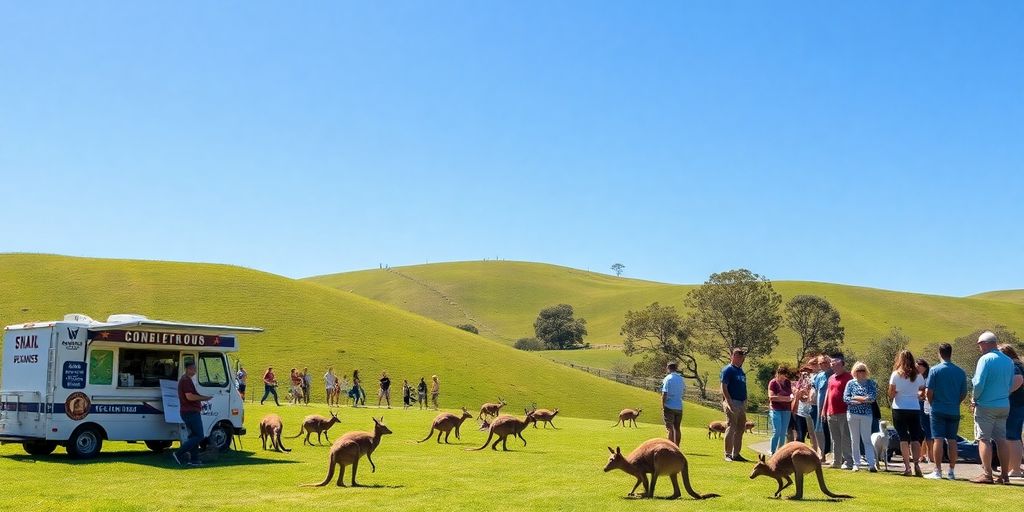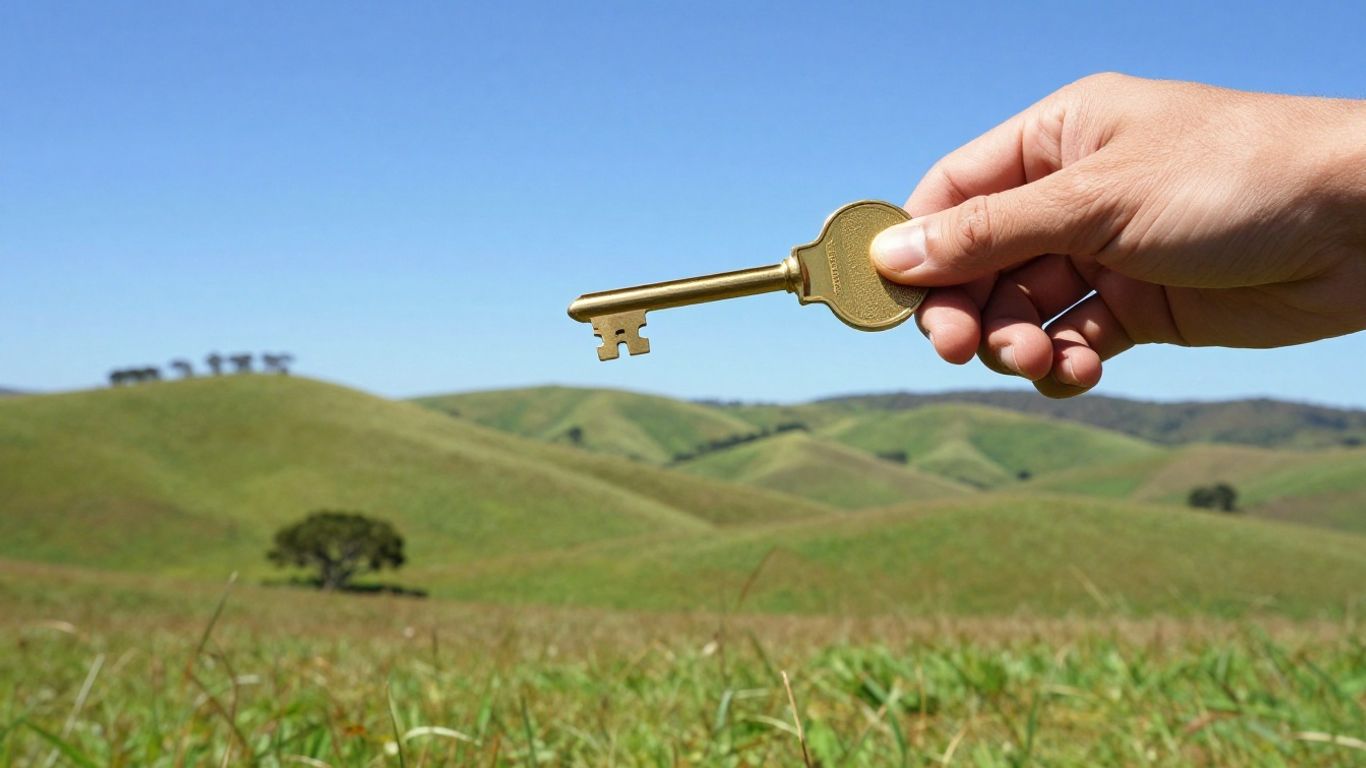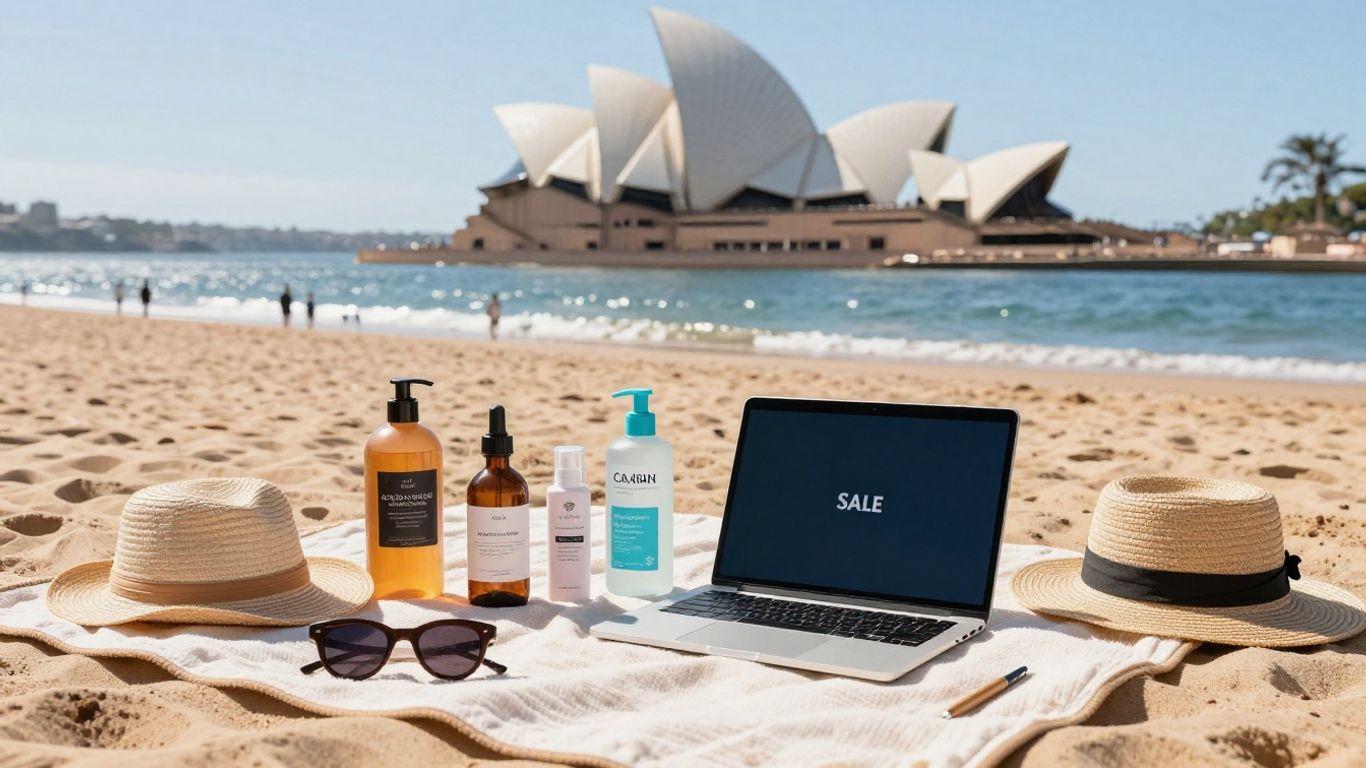G’day, future entrepreneurs! Thinking about kicking off your own gig in 2025? Well, you’ve come to the right spot. Australia’s a cracking place for new ventures, and there are heaps of good businesses to start without needing a massive pile of cash or years of study. We’re talking about ideas that are pretty straightforward to get into, don’t cost an arm and a leg to set up, and can actually make you a decent buck. So, if you’re keen to be your own boss and build something awesome, stick around. We’ve got some top ideas that might just be your ticket to success.
Key Takeaways
- Starting a virtual assistant service is a low-cost way to use your admin or organisational skills from home.
- Renting out a spare room or property on Airbnb can bring in extra cash, especially in popular tourist spots.
- Selling products through Amazon FBA means you can reach a huge customer base without handling all the shipping yourself.
- Etsy is a great platform for creative types to sell handmade goods or unique digital products to a global audience.
- Developing a Software as a Service (SaaS) product can be a big earner if you solve a common problem for businesses or individuals.
1. Virtual Assistant
Alright, so you reckon you’ve got the organisational skills of a Swiss watchmaker? Becoming a virtual assistant (VA) could be your ticket to working from your jammies while still raking in some dosh. Basically, you’re helping businesses and individuals with all those fiddly tasks they don’t have time for. Think admin, social media, customer service – the whole shebang.
The demand for VAs is booming, especially with more and more businesses cottoning on to the benefits of outsourcing.
Now, you might be thinking, "Yeah, but what’s the catch?" Well, it takes a bit of elbow grease to get started, but the flexibility is a massive perk. You can set your own hours, work from anywhere with a decent internet connection, and choose the types of clients you want to work with. Plus, the startup costs are pretty low – mainly just a computer and that aforementioned internet connection.
Here’s a few things to consider:
- Nail down your niche: What are you really good at? Social media? Bookkeeping? Focus on that.
- Get some training: Even if you’re already skilled, a course or two can give you an edge and boost your confidence.
- Set your rates: Do some research to see what other VAs are charging in Australia. Don’t undersell yourself, but be competitive.
- Get online: Create a website or profile on platforms like LinkedIn to showcase your skills and experience.
Starting as a VA means you’re in charge. You decide when you work, who you work with, and how much you charge. It’s a great way to build a business around your life, not the other way around. Plus, you’re constantly learning new things and developing new skills, which keeps things interesting.
Think of it this way: businesses need help, and you can provide that help from the comfort of your own home. It’s a win-win. You can even create a personal assistant business plan to help you get started. So, if you’re organised, tech-savvy, and keen to be your own boss, give being a VA a crack. You might just surprise yourself.
2. Airbnb
Alright, let’s talk about Airbnb. It’s still a solid option in 2025, especially if you’re sitting on a property or two. The Aussie tourism market is always ticking along, and short-term rentals are a big part of that. But it’s not just about chucking your place on the platform and hoping for the best; you’ve gotta be strategic.
The key is to offer something unique or cater to a specific niche. Think about it: families, business travellers, backpackers – they all have different needs. Tailor your listing and your service to match.
Here’s a few things to keep in mind:
- Location, location, location: Obvious, but crucial. Proximity to attractions, public transport, and amenities makes a huge difference.
- Presentation is everything: Good photos, a clean and well-maintained property, and a detailed description are non-negotiable.
- Guest experience: Go the extra mile. A welcome pack, local tips, and prompt communication can turn a good stay into a great one. Consider using Touch Stay guidebooks to really impress your guests.
Running an Airbnb isn’t passive income. It takes work. You’re essentially running a mini-hotel, so treat it like one. Be prepared to handle bookings, cleaning, maintenance, and guest communication. If you can’t do it all yourself, consider hiring a property manager.
And don’t forget the legal stuff. Make sure you’re across all the local regulations and permits. Nobody wants a hefty fine ruining their Airbnb dreams. It’s also worth looking into insurance that covers short-term rentals. Better safe than sorry, eh?
3. Amazon FBA

Alright, let’s talk about Amazon FBA (Fulfilment by Amazon). It’s basically where you sell stuff on Amazon, but Amazon handles all the storage, packing, and shipping for you. Sounds pretty good, right? It can be, but there are definitely things to consider.
Amazon FBA can be a really good way to get your products out there without having to deal with all the logistics yourself.
Think of it this way:
- You find a product to sell. Maybe you make it yourself, or maybe you buy it wholesale.
- You send your products to Amazon’s warehouse.
- Someone buys your product on Amazon.
- Amazon packs it up and ships it to the customer.
- You get paid (after Amazon takes their cut, of course).
It’s not all sunshine and rainbows, though. You’ve got to factor in Amazon’s fees, which can eat into your profits. Plus, you need to do your research to make sure there’s actually demand for your product. No point in stocking up on something no one wants to buy!
Starting an Amazon FBA business in Australia in 2025 could be a smart move, especially with the growing e-commerce market. But remember, it’s not a get-rich-quick scheme. It takes hard work, research, and a bit of luck to make it work. You’ll need to find the right products, manage your inventory, and keep an eye on those fees. But if you’re willing to put in the effort, it could be a great way to build a successful business.
One thing to keep in mind is that the Australian market is a bit different from the US or Europe. It’s smaller, so you might not get the same volume of sales. But it’s also less saturated, which means there’s less competition. Finding the right Amazon selling niche is key.
Here’s a quick look at some potential costs:
| Cost | Estimate |
|---|---|
| Product Sourcing | $500 – $5,000 |
| Amazon FBA Fees | Varies |
| Marketing & Advertising | $200+ per month |
4. Etsy

Etsy, eh? It’s not just for your nan’s knitted tea cosies anymore. It’s a proper marketplace for anyone with a bit of creative flair. If you’re handy, artistic, or just have a knack for making cool stuff, Etsy could be your ticket.
Etsy is a great platform to start selling handmade, vintage, and craft supply items.
Think about it: you could be selling anything from custom jewellery to quirky home decor. The beauty of Etsy is that it caters to a niche market – people actively looking for unique, handcrafted goods. That means less competition with the big corporations and more chance to get your stuff seen by the right eyes.
Starting an Etsy shop is relatively straightforward, but success hinges on a few things: quality products, good photography, and smart marketing. You’ll need to put in the effort to stand out from the crowd, but the potential rewards are definitely there.
Here’s a few things to keep in mind:
- Identify your niche: What makes your products different? Who are you trying to reach?
- Invest in good photography: High-quality photos are essential for showcasing your products.
- Provide excellent customer service: Happy customers are more likely to leave positive reviews and become repeat buyers.
- Promote your shop: Use social media and other marketing channels to drive traffic to your Etsy store.
I reckon if you’ve got the goods and the drive, Etsy could be a ripper way to start a business in 2025. You can even sell niche accessories to get started. It’s worth a crack, anyway!
5. SaaS
Okay, so SaaS, or Software as a Service, is still a big deal, and it’s not showing any signs of slowing down. Basically, instead of buying software outright, people subscribe to it, usually monthly or yearly. Think of it like renting software instead of owning it. This model has become super popular because it’s often cheaper upfront, easier to manage, and you always get the latest updates. Plus, for businesses, it means less IT hassle.
The SaaS market is absolutely booming, and there’s plenty of room for new players, especially in Australia.
Starting a SaaS business can be a bit tricky, but the potential rewards are huge. You need a solid idea, a good team, and a way to get your product in front of the right people. But if you can pull it off, you could be looking at a very profitable venture.
Here are a few reasons why SaaS is a good option:
- Scalability: It’s easier to scale a SaaS business than a traditional software company. You’re not shipping physical products, so you can add new users without too much extra cost.
- Recurring Revenue: Subscriptions mean you get a steady stream of income, which makes it easier to plan for the future. This is a big plus compared to relying on one-off sales.
- Global Reach: Because it’s all online, you can sell your software to anyone, anywhere in the world. This opens up a massive market for your product. Consider a cloud-based monitoring platform for infrastructure.
There are heaps of different types of SaaS businesses you could start. You could focus on a specific industry, like healthcare or education, or you could create a more general-purpose tool that anyone can use. The key is to find a problem that people are willing to pay to solve, and then build a software solution that does just that. You could even create a rental property management platform.
Here’s a quick look at the projected growth of the SaaS market:
| Year | Market Size (USD Billions) |
|---|---|
| 2021 | 197 |
| 2025 | 232 |
| 2030 | Projected Growth at 13.7% |
So, if you’re looking for a business idea with serious potential, SaaS is definitely worth considering. Just remember to do your research, find a niche, and build a product that people actually want to use. Good luck, mate!
Wrapping it all up
So, there you have it. Starting a business down under in 2025 doesn’t have to be a massive headache or cost you an arm and a leg. We’ve gone through a bunch of ideas, from things you can do with hardly any cash to stuff that might need a bit more planning. The main thing is to find something that clicks with you, something you’re keen on. Don’t just chase the latest fad if it doesn’t feel right. Think about what you’re good at, what problems you can solve for people, and how you can make a real difference. Australia’s a big place with heaps of opportunities, so get out there, give it a go, and make your mark. You never know, your idea could be the next big thing!
Frequently Asked Questions
What’s the go with starting a business in Australia in 2025?
Starting a business in Australia in 2025 looks pretty good, especially for online services or things that don’t need a huge starting cost. Think about virtual assistant work, Airbnb, selling stuff on Amazon, or even making cool things on Etsy. The key is to find something you’re good at and that people actually need.
Can I really start a business without heaps of money?
Absolutely! Lots of businesses can kick off without a massive pile of cash. Online ventures, like being a virtual assistant or setting up an Etsy shop, often just need a computer and an internet connection. Even something like Airbnb can start small with just a spare room.
What makes a business idea a ‘good’ one?
The best ideas are usually simple, don’t cost an arm and a leg to get going, and you can manage them without a massive team. If it’s something you can do from home or online, even better! Think about what problems you can solve for people.
How do I actually get a small business up and running?
Getting started is easier than you think. First, pick your idea. Then, do a bit of homework to make sure people want what you’re offering. You might want to jot down a simple plan, even just a ‘one-page plan’, to get your thoughts in order. After that, it’s about getting the word out and finding your first customers.
Can I run these businesses from anywhere in Australia?
Definitely! The internet has opened up so many doors. You can be a virtual assistant for clients anywhere, sell products on Amazon or Etsy to a global audience, or even create software (SaaS) that people all over the world can use. Location isn’t as much of a barrier as it used to be.
What kind of stuff do I need to get started with these ideas?
It really depends on the business. A virtual assistant might just need a good computer and internet. For Airbnb, you’ll need a suitable place. Amazon FBA and Etsy will involve some stock and shipping. SaaS usually means software development. Start small and grow as you go!





